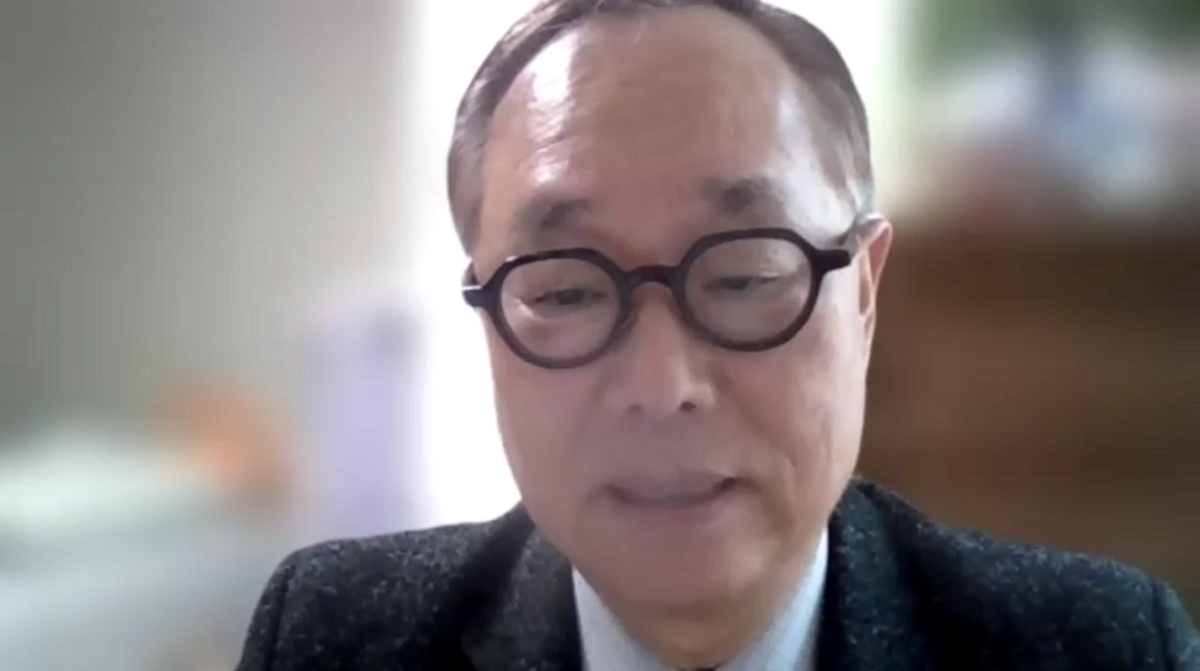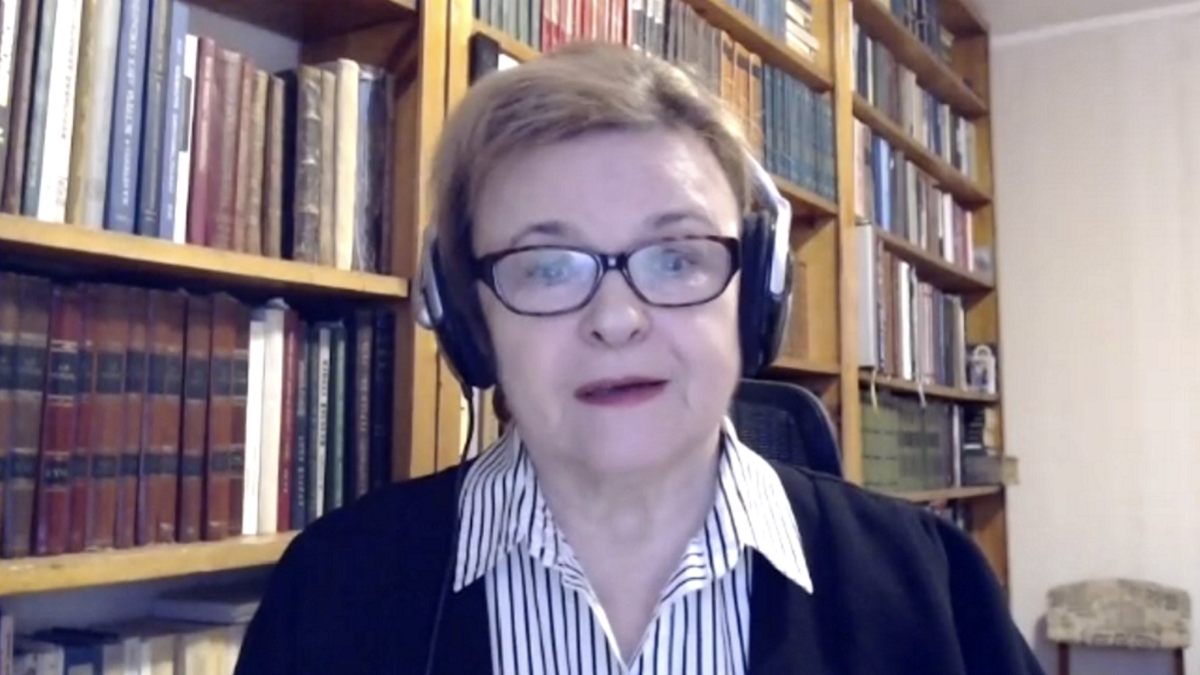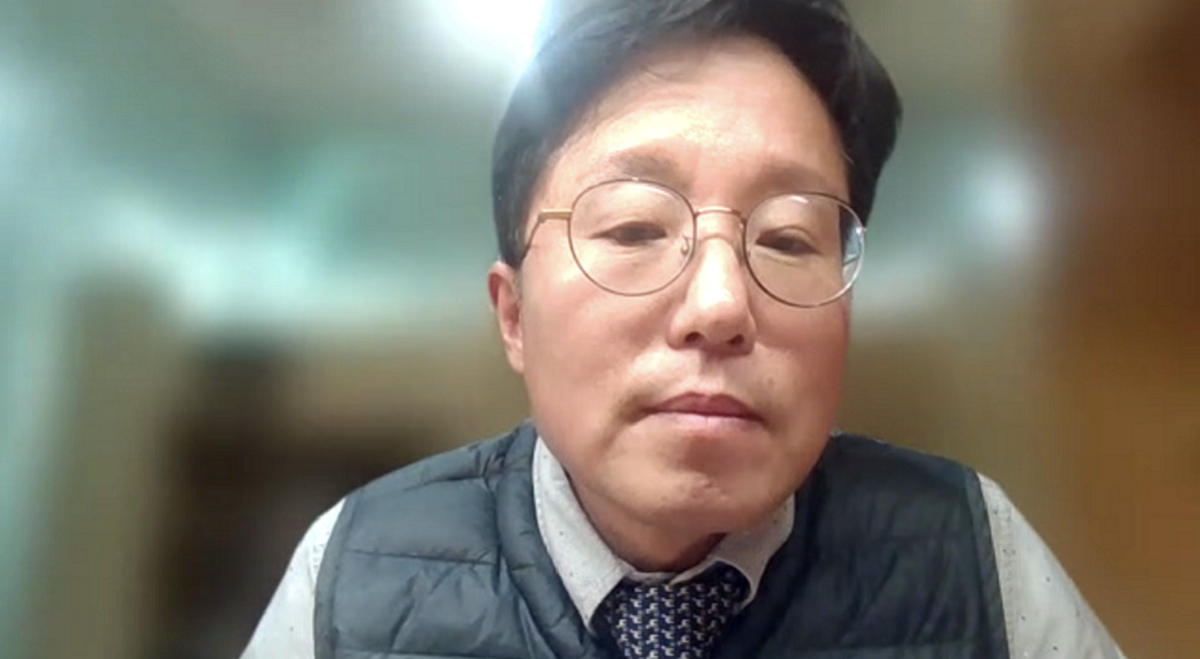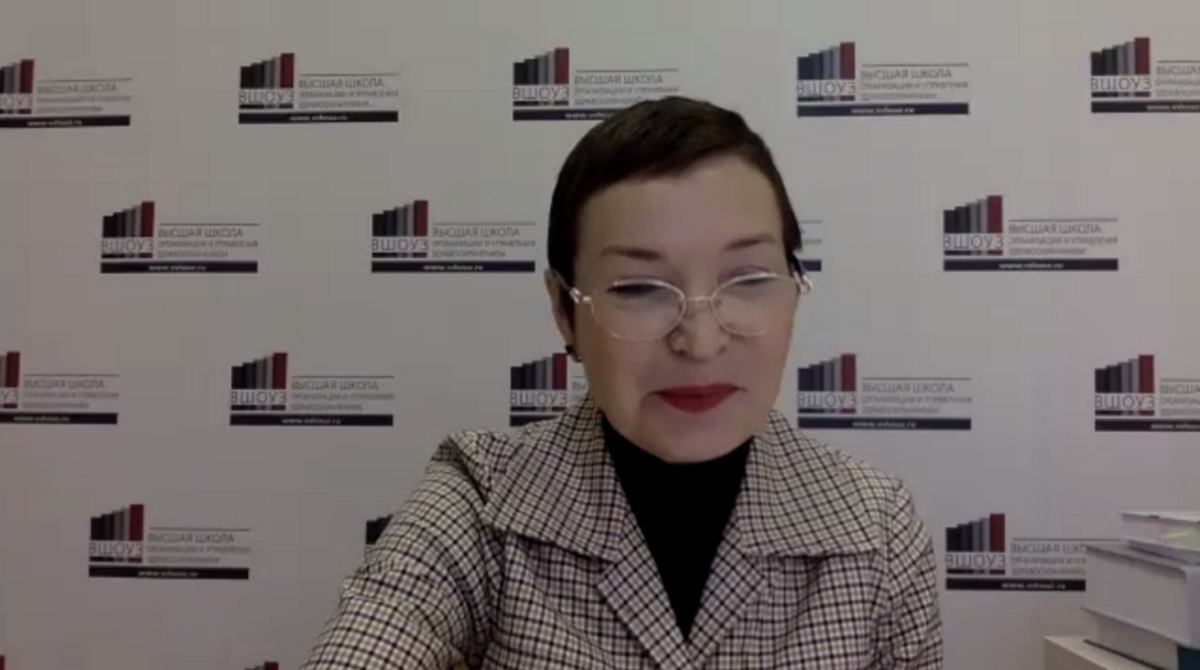Journalists, doctors, and scientists discuss the role of the media in the fight against pandemics
The Korea—Russia Dialogue Forum (KRD) has held a meeting of the working group "The Media and Civil Society". The focus of the event is "Science, health care and the media: the role of the media in the era of endemic diseases".
Welcoming the meeting participants, Mr Lee Kyu Hyung, ex-Ambassador of the Republic of Korea to the Russian Federation and Chair of the KRD Coordinating Committee on the Korean side, drew attention to the paradox of the social function of the media. The media, along with how it can benefit public, can also have a destructive power.

’It seems that the so-called pandemic history is reaching a tipping point. Our desire to be prepared for the post-COVID era and to rethink many things is very natural,’ said Mr Lee Kyu Hyung. He also added that the media made a huge contribution to how society had perceived and would perceive cataclysms.
Nikolay Kropachev, Chair of the the KRD Coordinating Committee on the Russian side, Rector of St Petersburg University, and Corresponding Member of the Russian Academy of Sciences, drew attention to the fact that the seminar was not the first event of the Korea—Russia Dialogue Forum that was related to health issues.
In May 2021, the issues of cooperation between Russia and the Republic of Korea in the field of healthcare and medicine were discussed during the practical session of the 8th Forum of Rectors of leading universities of Russia and the Republic of Korea at the Korea—Russia Dialogue Forum. The experts of the two countries discussed the tasks of bilateral cooperation in the field of medicine and education in the post-COVID period.
Nikolay Kropachev, Rector of St Petersburg University
’Health issues were discussed at the Russian-Korean Symposium on Immune Disorders. The Symposium was part of the Korea—Russia Dialogue Forum in December in 2021,’ said Nikolay Kropachev. He added that St Petersburg University annually holds a range of events that focus on medicine. Among them are: Biomedical Research Conference for Young Scientists and Congress of the World Society of Cardiovascular and Thoracic Surgeons. The President of the World Society of Cardiovascular and Thoracic Surgeons is Piotr Yablonsky, Vice-Rector for Medical Activities at St Petersburg University and Honoured Physician of the Russian Federation.
The seminar began with opening remarks by the moderators of the session. Lim Kwang Ki, Head of the working group "The Media and Civil Society" of the Korea—Russia Dialogue Forum from the Korean side, Director of NATV TV channel of the General Assembly of the Republic of Korea, admitted that the seminar was essential. According to him, the very fact that, despite the global situation, the seminar is held regularly and brings together an enormous number of experts evidences the intention to strengthen friendly relations.

Lyudmila Gromova, Head of the Department of History of Journalism at St Petersburg University, member of the Union of Journalists of Russia, and Professor Emeritus at St Petersburg University, was a moderator of the meeting from the Russian side. She said that the topic of the meeting was extremely important. It focused on the issues relating to how we could adopt to new, post-pandemic conditions. ’Efficiency is achieved by engaging all participants in civil society and consolidating all social institutions. The media play a key role in this, both as an informer and consultant and a means of a therapeutic function to a certain extent,’ said Lyudmila Gromova. She agreed with Lee Kyu Hyung that the media often abuse their power of influence and manipulate certain groups of population.
It seems to me very symbolic that this discussion is held at St Petersburg University. The University is actively engaged in developing medical science and practice. At St Petersburg University, medical faculties and the Pirogov Clinic for High Medical Technologies at St Petersburg University harmoniously coexist and future specialists in medicine are well prepared.
Lyudmila Gromova, Head of the Department of History of Journalism at St Petersburg University, a seminar moderator, and Professor Emeritus at St Petersburg University
The first report was "The position of the media in the era of endemic diseases". It was delivered by MD Li Ching Han, a medical columnist of the newspaper "The Dong-A Ilbo". He is also engaged in educational activities on television and on the Internet.

He said that he was a direct witness to the outbreak of Covid-19 in the city of Daegu, where he helped as a doctor. He also talked about how the pandemic had begun in South Korea. ’Covid is more than a health crisis. It affects the fundamentals of the economy. Global economic activity is declining, while poverty and inequality are aggravated,’ he said. The pandemic has spurred such devastating phenomena as youth suicide and the spread of fake news. He also described the Korean model to deal with pandemics. It is mass testing, tracking the incidence, and effective treatment.
The first meeting of the working group in 2022 was held in June. It focused on fake news and information hygiene.
Guzel Ulumbekova, the founder of the GEOTAR-Media Publishinhg Group, the Rector of the Higher School of Health Organisation and Management, presented a report on the role of the medical elite in shaping the attitude of society towards health protection. Among the main issues she focused on were: the medical elite should not be afraid to talk about problems; the executive branch should not be afraid of criticism; and the media should be mediators between the elite, society, and public sector. This is intended to make power sustainable and medical care accessible to patients.

’In conclusion, I want to say that being a representative of medical elite is a very huge responsibility. We, doctors, took an oath of allegiance to our profession, i.e. the Hippocratic oath. We are always obliged to act in the interests of society and patients, even if it is difficult and it takes time, courage and patience,’ said Guzel Ulumbekova. ’The main qualities that the medical elite should have are: scientific knowledge and an ability to constantly update it; an ability to tell the truth; an ability to be firm in convictions; an ability to speak in a way that other people understand you; an ability to work with the media and social networks; and an ability to inspire trust among population.’
The discussion was attended by two representatives of St Petersburg University. Among them were: Sergei Ilchenko, Professor in the Department of TV and Radio Journalism at St Petersburg University, and Lidiia Soprun, an epidemiologist of the first category of Outpatient Department No 4 at the Pirogov Clinic for High Medical Technologies at St Petersburg University and Assistant Lecturer in the Department of Health Organisation and Medical Law at St Petersburg University.
We should use our experience of the last two years in order not to repeat our mistakes, said Sergei Ilchenko. He added that we need highly-qualified media professionals with in-depth medical knowledge who are able to competently and effectively build relations with audience and develop trust in official sources of information. In his opinion, a master’s programme to prepare such specialists is relevant for both Russia and the Republic of Korea. ’I see this as the purpose of our discussion today. I realised that it was important for us all. The health of each person is part of the health of the whole society in general. If we convey this idea to the audience, then we have a chance to survive the next pandemics with minimal losses,’ he said.
Ja-Ryong Koo discussed the importance of preparing science journalists. He is the Head of the Hwajeong Peace Foundation (the Peace Foundation 21) established by the newspaper "The Dong-A ILbo". St Petersburg University has been running the master’s programme in Popular Science Journalism for six years, said Lyudmila Gromova. She said that it was the first programme in popular science journalism in Russia. Universities such as Lomonosov Moscow State University, Novosibirsk State University, and MGIMO University, have joined the experience of the University in training specialists in the field of scientific communication. The prospects for the development of this programme are in specialisation in medicine, she added.
Lidiia Soprun presented a view of the problem from the side of a practicing epidemiologist.
Today, the epidemiological process of the novel coronavirus disease in domestic and foreign literature is considered in the context of the classical links, i.e. the source of infection, the mechanism of transmission, and the susceptible contingent. However, the novel coronavirus disease is a broader process that has rapidly penetrated into all areas of society around the world.
Lidiia Soprun, an epidemiologist of the first category of Outpatient Department No 4 at the Pirogov Clinic for High Medical Technologies at St Petersburg University and a lecturer in the Department of Health Organisation and Medical Law at St Petersburg University
’That is why approaching this infectious disease from the socio-ecological theory of the epidemiological process of Beniamin Cherkasskii is an urgent task today,’ said Lidiia Soprun. According to Cherkasskii’s theory, there are several systems that describe the epidemic process. The first is the ’parasitic system’, in particular the SARS-CoV-2 virus. The second system is the mechanism of transmission of the virus, which is inextricably linked with the third system, i.e. the natural habitat of the virus, or the population. Together they form the epidemiological ecological system, or the ecosystem level of the epidemic process system. ’At the ecosystem level, social factors influence the spread of the virus from the outside, acting as external conditions that ensure the functioning of the system,’ said Lidiia Soprun. She recalled that it was the media that drew attention to the problem of the spread of coronavirus disease, but the information was not always reliable. In general, the media can be considered as a separate factor in the spread of infection, Lidia Soprun believes.
Among the debaters were: Shin Hyun-young, a member of the Democratic Party of Korea and a member of the Health and Welfare Committee of the National Assembly of the Republic of Korea; Olga Glukhovtseva, Deputy Head of the Office of International Cooperation of the Russian Academy of Sciences; and Kyung-bok Kwon, Head of the Office for Public Relations of Hanyang University and ex-correspondent of the newspaper "The Chosun Ilbo" in Moscow.

